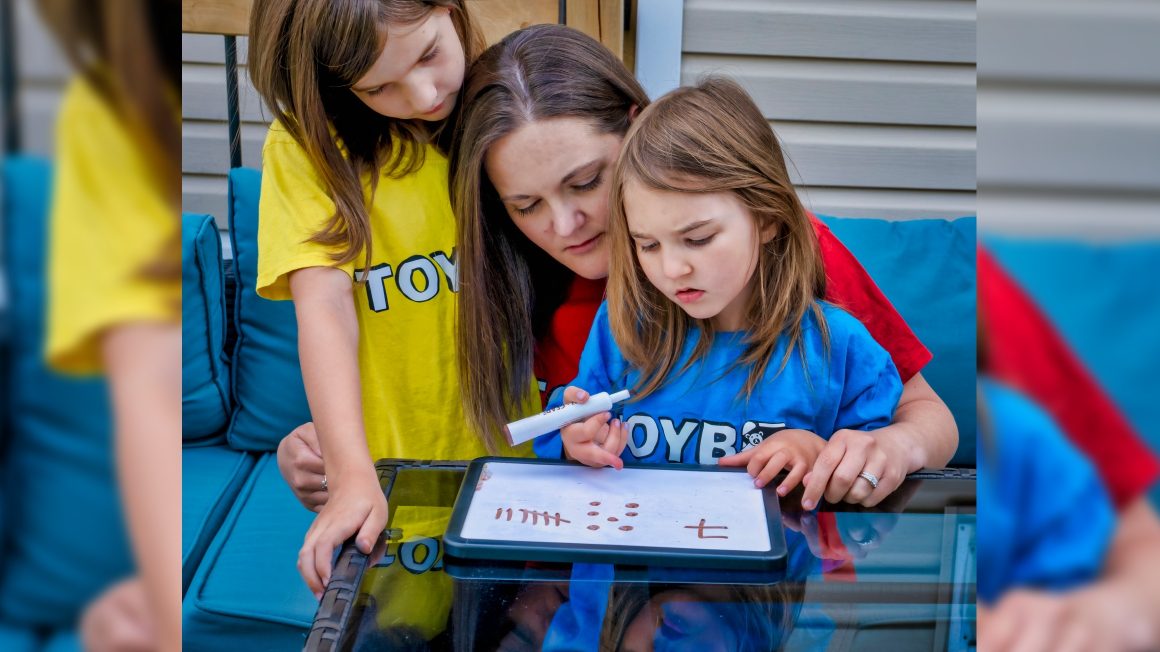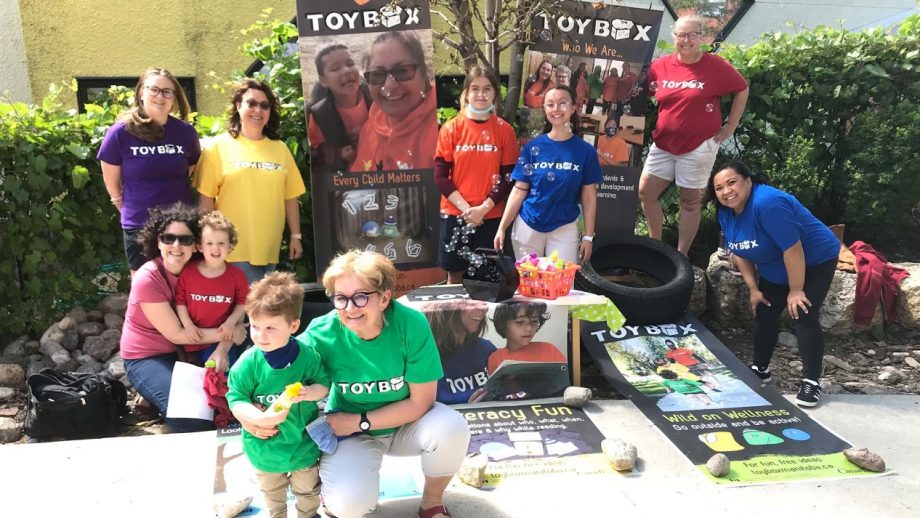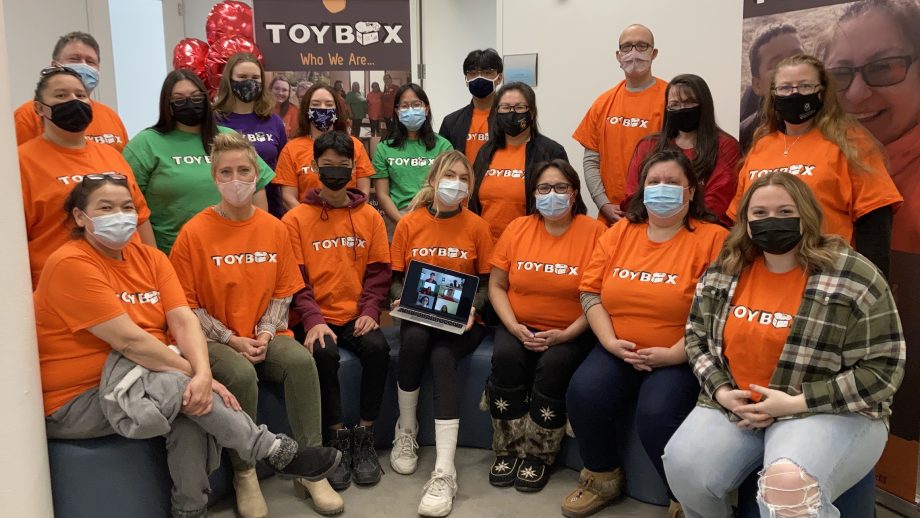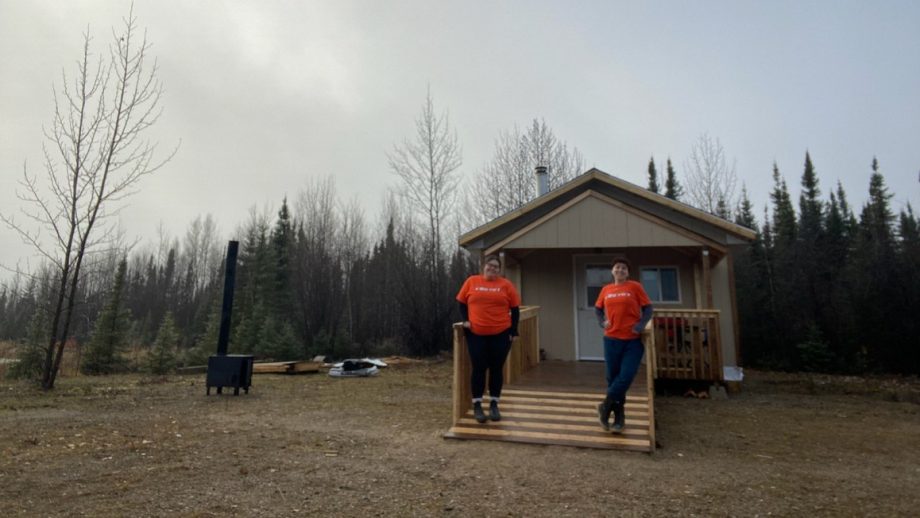The ToyBox project is taking another step forward towards completion.
I don’t think there will ever be a finish line. As long as we’re in the business of education, we’ll be constantly redefining the project with the landscape and atmosphere that’s out there. My colleagues and I are in it for the long haul.
Dr. Sheri-Lynn Skwarchuk
Thanks to a $200,000 Social Sciences and Humanities Research Council (SSHRC) Partnership Development Grant, the children’s numeracy, literacy, and wellness tool is expanding outside of Manitoba.
Dr. Sheri-Lynn Skwarchuk, Toybox creator and Director of Developmental Studies at The University of Winnipeg, says the funding will help the solidify the project.
“The plan is now to really think about the strategies and make sure there’s a strong research backing to the project,” she explained. “And also to work on the communications strategy, not only in Manitoba, but beyond, too.”
After testing their strategies with Manitoba families this past winter and spring, Skwarchuk explained that 85 to 95 per cent of the literacy and numeracy strategies were rated as “we love them” by the families.
While the wellness strategies tested a little lower, she notes that’s mostly due to the fact that wellness is fairly new to families, unlike literacy and numeracy.
“We are working on uptake of wellness strategies because we feel they are just as important,” Skwarchuk said.
Growing the ToyBox team nationally
The ToyBox Canadian expansion has landed in Ontario. Skwarchuk, who’s had ties to Carleton University and the University of Ottawa for years, recently pitched the project to researchers at both universities.
Dr. Erin Maloney, Assistant Professor in the Department of Psychology at UOttawa, jumped on the opportunity to be involved.
Her research, which sits at the intersection of cognitive psychology, developmental psychology, and education, focuses on the cognitive and emotional factors that influence math learning and the impact of parents and teachers on children’s learning.
“(Dr. Maloney) is this cool and amazing researcher who focuses on math anxiety, but does everything else as well,” Skwarchuk explained. “She’s a major addition to the team.”
What’s Next?
Equipped with new funding and a larger team, Skwarchuk says the group has a few areas they’d like to focus on during the back half of 2021.
They include developing governance procedures, creating a communications plan for the external selling of the project, and continuing to focus on the rollout of strategies.
“We’ve also decided we need to hire a company to do an app and we’ve been interviewing contractors for that,” Skwarchuk added.
The goal is to have ToyBox live to families across Canada by 2022. While it’s been a journey to get the project near release, the biggest hurdle will be sustaining the tool after it’s live.
“I don’t think there will ever be a finish line,” Skwarchuk noted. Whether it’s an update in technology or adding new strategies over time, she says ToyBox will be a lifelong project.
“As long as we’re in the business of education, we’ll be constantly redefining the project with the landscape and atmosphere that’s out there,” Skwarchuk said. “My colleagues and I are in it for the long haul.”
“We’re going to look for donors to support the longevity of the project once we’ve shown it’s a solid project within this granting opportunity.”
To learn more about the ToyBox project, visit: ToyBoxManitoba.ca.
The Social Sciences and Humanities Research Council of Canada (SSHRC) is the federal research funding agency that promotes and supports post-secondary-based research and research training in the humanities and social sciences.





